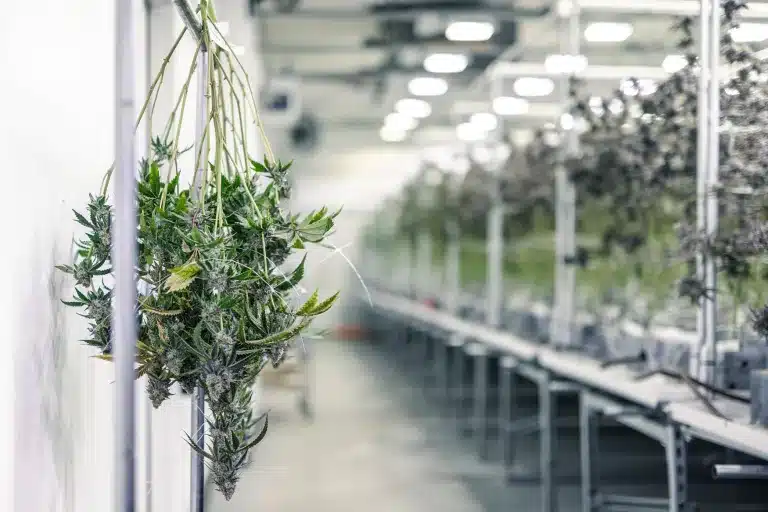- What Is Cannabis?
- Potential Benefits of Cannabis Use
- Prevalence of Cannabis Use During Pregnancy
- Why Pregnant Women Use Cannabis
- 4 Risks of Prenatal Cannabis Exposure
- Cannabis Usage and Breastfeeding
- Effects of Other Substances on Maternal and Fetal Health
- Mental Health and Substance Use Disorders
- Making Informed Decisions
- Knowledge Is Power for Maternal and Child Health
- Discover Your Path to Wellness After Pregnancy and Breastfeeding with Windy City Cannabis
As cannabis legalization spreads and social acceptance grows, it’s essential for pregnant women and breastfeeding mothers to understand the potential risks associated with cannabis use during these crucial life stages. While some may turn to cannabis to ease morning sickness or other pregnancy discomforts, there are serious concerns about how prenatal cannabis exposure could affect fetal development, birth outcomes, and long-term child health. In short, we at Windy City Cannabis strongly advise against consuming cannabis while pregnant. Why? Let’s find out!
This article will explore the current research on maternal cannabis use, prenatal cannabis exposure, and the impacts on neonatal outcomes, fetal growth, and child development.
What Is Cannabis?

Cannabis is a psychoactive drug derived from the Cannabis sativa plant. It has been used for centuries for its medicinal properties and recreational effects. The main psychoactive component of cannabis is tetrahydrocannabinol (THC), which is responsible for the “high” associated with cannabis use. Cannabis also contains other compounds like cannabidiol (CBD) that have therapeutic potential without the intoxicating effects.
Cannabis has gained significant popularity in recent years due to a confluence of factors. The growing legalization movement has made cannabis more accessible and socially acceptable. Many people use cannabis for its relaxing and euphoric effects, as a way to unwind or enhance social experiences.
Potential Benefits of Cannabis Use
While cannabis use during pregnancy and breastfeeding is not advised, it’s worth noting that cannabis and cannabinoid products may have therapeutic potential for some health conditions in non-pregnant adults. Some areas of active research include:
- Chronic pain management
- Chemotherapy-induced nausea and vomiting
- Muscle spasticity associated with multiple sclerosis
- Sleep disorders
- Anxiety and depression
However, it’s important to note that cannabis use does carry risks, particularly for certain populations like adolescents, pregnant women, and those with preexisting mental health conditions or substance use disorders. Cannabis can have short-term effects on memory, coordination, and judgment, and long-term heavy use has been associated with dependence and neurocognitive impairments. The legal status, potency, and quality of cannabis products can also vary widely, making it crucial for users to be informed and cautious.
Prevalence of Cannabis Use During Pregnancy

Research indicates that cannabis is one of the most frequently used drugs during pregnancy. A 2019 analysis found that 7% of pregnant women self-reported using cannabis in the past month. Use appears to be most prevalent in the first trimester, with rates reaching up to 12%. Factors associated with a higher likelihood of pregnancy cannabis use include younger maternal age, lower household income and education levels, and concurrent use of other substances like tobacco and alcohol.
However, experts believe that self-reported data likely underestimates the true extent of use, due to the stigma and legal concerns around disclosing substance use during pregnancy. Studies that have tested for biological markers of cannabis exposure have found evidence of use in 15-28% of pregnant women. These findings suggest that intrauterine cannabis exposure is more common than self-reports would indicate, despite medical recommendations against use.
Why Pregnant Women Use Cannabis
Pregnant women who use cannabis often report doing so to manage nausea and vomiting, improve relaxation, and aid sleep. Some view cannabis as a more “natural” remedy for pregnancy symptoms compared to pharmaceutical options. However, the American College of Obstetricians and Gynecologists (ACOG) committee opinion emphasizes that there are safer, more evidence-based treatments for issues like morning sickness than cannabis. They advise pregnant women to stop using cannabis and disclose any use to their prenatal care providers.
4 Risks of Prenatal Cannabis Exposure
Cannabis use during pregnancy has become an increasingly important public health concern as legalization and social acceptance of the drug have grown. While some pregnant and nonpregnant women may use cannabis to alleviate symptoms like morning sickness or anxiety, mounting evidence suggests that prenatal cannabis exposure can have detrimental effects on fetal development and later child health outcomes.

1. Potential Adverse Impacts on Fetal Development and Child Health
The primary concerns around cannabis use while pregnant relate to the potential adverse pregnancy outcomes on fetal development and later child health. The major psychoactive compound in cannabis, THC, can pass through the placental barrier and enter fetal circulation. This means the developing fetus can be exposed to THC during critical windows of human development.
2. Increased Risks of Negative Obstetric and Neonatal Outcomes
A number of population-based studies have found statistically significant associations between maternal cannabis use and negative obstetric and neonatal outcomes. These include increased risk of low birth weight, preterm birth, and decreased head circumference. A 2016 systematic review and meta-analysis concluded that cannabis use during pregnancy was associated with a 110-gram reduction in birth weight on average. Low birth weight can set the stage for various infant health complications.
3. Potential Impairment of Fetal Neurodevelopment
Researchers have also raised alarms that prenatal cannabis exposure may negatively affect fetal brain development. The endocannabinoid system is involved in many aspects of neural development. Disrupting its normal functioning with exogenous cannabinoids could have detrimental effects. Studies have noted altered arousal, irritability, and self-regulation abilities in newborns with utero exposure to cannabis.
4. Evidence of Long-Term Developmental Consequences
There is also a growing body of evidence pointing to longer-term developmental consequences. After controlling for confounding factors, some studies have found increased rates of cognitive functioning deficits and child behavior problems in children with a history of prenatal marijuana exposure. For instance, one study reported poorer reading scores and visual-motor coordination in 4-year-olds whose mothers used cannabis while pregnant. Other research has suggested associations with impulsivity and attention issues later in childhood.
However, it’s important to acknowledge the limitations of the available research on prenatal cannabis exposure and child outcomes. Many studies rely on maternal self-report, which can be unreliable. Accounting for the many potential confounding variables, such as co-occurring use of other substances like tobacco and alcohol, nutrition, prenatal care access, genetic influences, and socioeconomic factors is methodologically challenging. More research, including prospective studies, is needed to clarify the specific impacts of prenatal cannabis exposure.
Cannabis Usage and Breastfeeding

The concerns around maternal cannabis use continue after birth for women who are breastfeeding. THC is passed into breast milk and can accumulate in the nursing infant’s body. Due to its long half-life, THC is slowly released over an extended period. So even if a mother’s use is sporadic, the infant may still have ongoing cannabis exposure.
While research in this area is sparse, there have been concerning case reports of poor feeding and sedation in infants exposed to THC via breast milk. Animal studies indicate that early THC exposure may negatively impact brain development. Based on the available evidence, the ACOG, American Academy of Pediatrics (AAP), and Academy of Breastfeeding Medicine all strongly advise against any cannabis use while breastfeeding.
Effects of Other Substances on Maternal and Fetal Health
It’s important to note that cannabis is not the only substance that can negatively impact fetal development and child health outcomes. Other commonly used drugs, both illicit and legal, can also pose risks during pregnancy:
- Marijuana use during pregnancy has been linked to increased odds of low birth weight, stillbirth, and neonatal abstinence syndrome.
- Prenatal tobacco exposure is a well-established risk factor for adverse pregnancy outcomes like preterm birth, lower birth weights, and sudden infant death syndrome (SIDS).
- Alcohol exposure during pregnancy can lead to fetal alcohol spectrum disorders (FASDs), which are associated with lifelong physical, cognitive, and behavioral challenges.
- Concurrent use of multiple substances, such as using both marijuana and tobacco while pregnant, may compound the risks to maternal and fetal health.
Comparing the Impacts of Marijuana vs Tobacco
When considering the effects of substance use during pregnancy, it can be informative to compare marijuana versus tobacco. While both pose risks, the research on tobacco is more conclusive and deeply concerning.
| Substance | Pregnancy Risks |
|---|---|
| Cigarette Smoking | Increased risk of miscarriage, stillbirth, preterm birth, low birth weight, SIDS, and placental problems |
| Marijuana Exposure | Increased risk of neonatal abstinence syndrome and longer-term impacts on children’s brain development and behavior. (evidence is less definitive) |
So while tobacco likely has more severe impacts on obstetric outcomes, marijuana still poses concerning risks through both short and long-term effects on child health and development. The adverse impacts of either substance are likely heightened by the concurrent use of both, which is common among pregnant women who use marijuana. Pregnant women should be advised and supported in avoiding both tobacco and cannabis to optimize pregnancy outcomes and reduce harm.
Mental Health and Substance Use Disorders
Mental health issues and other substance use disorders are important considerations when discussing cannabis use in pregnancy. Pregnant women with psychiatric disorders like depression, anxiety, bipolar disorder, or PTSD are more likely to use substances like cannabis, often in an attempt to self-medicate symptoms. Substance use disorders and mental health conditions can both independently increase the risk of adverse pregnancy outcomes, so their co-occurrence with cannabis use is particularly concerning.
Pregnancy can also be a challenging time that exacerbates or leads to mental health struggles. Some women may perceive cannabis as a safer way to cope with symptoms than other substances or medications. However, professional mental health treatment, ideally integrated with prenatal care, is recommended over cannabis for addressing psychiatric symptoms in pregnancy. Untreated mental illness poses risks, but evidence-based options like therapy, support groups, and pregnancy-safe medications are preferable to cannabis with its uncertain but concerning impacts on fetal development.
Making Informed Decisions
For any expecting or new mother, the choice to use cannabis is a highly personal one that should involve careful consideration and consultation with knowledgeable healthcare providers. They can help in weighing the potential therapeutic benefits for the mother against the possible harms to the child’s growth and development.
Overall, leading medical organizations like ACOG and AAP strongly recommend abstaining from cannabis use during pregnancy and breastfeeding whenever feasible. While not definitive, the existing scientific literature does point to concerning risks related to fetal growth, brain development, and later cognitive and behavioral functioning associated with prenatal marijuana exposure. The perceived benefits of using cannabis to manage pregnancy symptoms may be outweighed by the potential long-term consequences for the child.
There is undoubtedly a need for more high-quality research to elucidate the full range of impacts related to prenatal cannabis exposure. As cannabis laws and attitudes continue to shift, this will be an increasingly important public health priority. In the interim, it’s critical that pregnant and breastfeeding women have access to the most current, evidence-based information to guide their choices around cannabis use. Having open, honest conversations with prenatal care providers are always encouraged for support in navigating this complex health issue.
Knowledge Is Power for Maternal and Child Health

Navigating the landscape of cannabis use during the vulnerable periods of pregnancy and breastfeeding can be challenging. While cannabis may offer potential symptom relief for some pregnant women, the risks to fetal and child development are concerning based on the available evidence. As cannabis products become increasingly accessible and socially accepted, it’s more critical than ever that public health messaging provides accurate, up-to-date information about the potential harms of use during these crucial life stages.
Ultimately, the decision to use cannabis during pregnancy or breastfeeding is a personal one that each woman must make based on her unique circumstances and priorities. However, by grounding these decisions in scientific evidence and open dialogue with trusted health professionals, mothers can be empowered to make informed choices that prioritize the health and well-being of both themselves and their children. Because when it comes to giving the next generation the strongest start in life, knowledge truly is power.
Discover Your Path to Wellness After Pregnancy and Breastfeeding with Windy City Cannabis
At Windy City Cannabis, we’re committed to being a trusted resource for evidence-based information and personalized guidance on cannabis use. If you’re not currently pregnant or breastfeeding and are curious about how cannabis might support your health goals, we invite you to visit one of our dispensary locations.
Our knowledgeable staff is dedicated to providing a judgment-free, educational experience to help you navigate the world of cannabis with confidence. Whether you’re already familiar with cannabis or are new to plant-based medicine, we’re here to listen to your needs, answer your questions, and guide you toward products that align with your wellness priorities. Your health and empowerment are at the core of our mission — and we’re honored to be your partner on the journey toward informed, intentional cannabis use.
Sign Up for Our Rewards Program
Find your perfect cannabis products at Windy City Cannabis. Whether you’re a medical or recreational user, we’ve got you covered.




